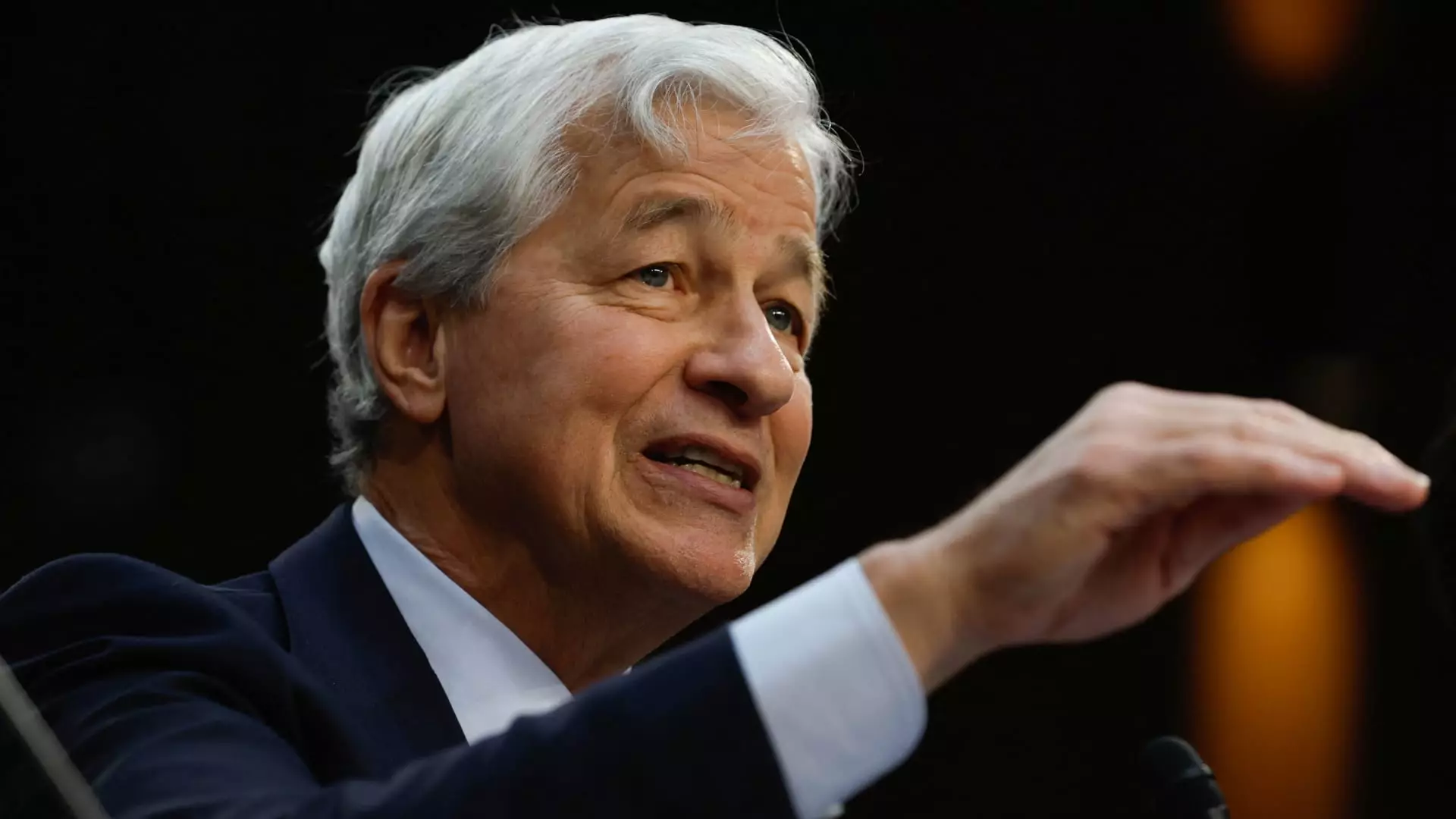Jamie Dimon, the CEO of JPMorgan Chase, made waves recently by predicting a concerning decline in corporate earnings estimates, heightening the unease surrounding President Trump’s unpredictable trade negotiations. While the stock market has historically been a barometer of optimism, Dimon’s remarks signal a shift towards skepticism as corporations grapple with an increasingly fraught economic landscape. This should be a wake-up call for investors who have, until now, shown relentless faith in the power of ingenuity and capitalism to weather any storm.
Self-Imposed Blindfolds in the Corporate Space
What is particularly alarming is the trend of companies retracting their earnings guidance in this tumultuous environment. Dimon highlighted how certain companies are opting to provide less clarity to their investors, casting doubt on their ability to project earnings in an unpredictable era of tariffs and trade wars. This phenomenon raises serious questions about the sustainability of trust in corporate governance. After all, if companies can no longer offer reliable estimates on their future earnings—something that is a cornerstone of responsible financial reporting—it points to deeper issues of preparedness and transparency.
The Ripple Effects of Trade Uncertainty
Analysis shows that several high-profile corporations, from Walmart to Delta Airlines, have already slashed parts of their guidance as they navigate the treacherous waters created by escalating U.S.-China tensions. These revisions are not mere adjustments; they reflect a palpable hesitation among businesses to commit to long-term investments. As Dimon emphasized, clients are beginning to pull back, not just from major acquisitions but also from middle-market deals. This trend of adopting a “wait-and-see” approach not only threatens individual businesses but has the potential to stall economic growth as a whole.
Short-Term Gains vs. Long-Term Strategy
The preference for “near-term optimization of supply chains” over long-term strategic planning represents a fundamental shift in how businesses are preparing for the future. Is this mindset a necessary precaution, or is it indicative of a larger failure in leadership to adapt and innovate in the face of volatility? The economic environment has fostered a culture of caution that prioritizes immediate returns at the expense of visionary growth. While it may be tempting to favor short-term gains, the ability to navigate through challenges while remaining focused on sustainable growth is what separates resilient businesses from their less fortunate counterparts.
Consumer Behavior: Caught in the Crossfire
Interestingly, consumer behavior seems to be following a similar pattern of inconsistency, as they accelerate purchases out of fear that tariffs will inflate prices. This reaction highlights the fragility of consumer confidence and the direct impact that governmental policies can have on individual spending habits. As consumers stockpile products, driven by a fear of future shortages or price hikes, they inadvertently add a layer of unpredictability to the market. The notion that fear, rather than pure economic logic, governs purchasing decisions is a disturbing trend that underscores the fragility of current economic stability.
The complexities emerging from this trade turmoil should provoke a serious re-evaluation of corporate strategies and consumer behavior. With every uncertainty, there is an opportunity for recalibration; however, this recalibration demands not just caution, but courage to embrace long-term visions in even the most tumultuous circumstances.

